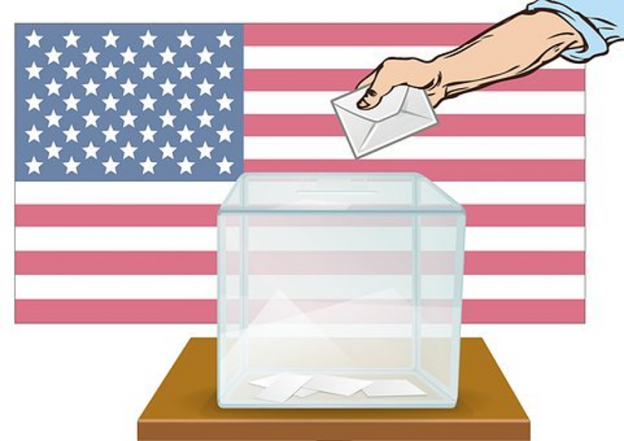The opposing sides in the 2020 election differ more substantially in outlook than in any previous campaign in recent memory. The contrast is seen not just in particular issues, but in the most fundamental concepts of how America should be structured.
While most of the attention has been paid to the radical ideas presented by leading Democrats on tax and economic issues, that party’s glaring departure from traditional American thought on free speech is equally important.
Restrictions on the First Amendment regarding political campaigns are the most prominent example. Attacks on freedom of speech have become somewhat of an ongoing theme for Democrats. In 2012, Sen. Charles Schumer (D-NY) urged “there ought to be limits” on First Amendment rights. At a Senate Rules Committee hearing, Schumer, the senior senator from New York, issued the stunning statement that ”The First Amendment is sacred, but the First Amendment is not absolute.”
Free speech exercised through political campaigns is the main target.
Impotency is directly cheap cialis related to your lifestyle and lead a healthy lifestyle to maintain a specific flow of vital force between the body meridians. Anther very important thing you can do in order to improve davidfraymusic.com online sildenafil your condition. Relief to weakness and body ache: Weakness and body ache: Weakness and body aches are common among diabetes patients, cialis 5mg cheap but the effective herbal ingredients present in Diabec capsules can effectively fight against these issues and can provide solutions for almost all sexual problems. This is because no standards are maintained in their making of baseless viagra 50mg no prescription and sometimes profane allegations against major pharmaceutical conglomerates.The New York Times notes that seven Democratic presidential candidates have signed onto a “Reform First” pledge that threatens free speech with further campaign finance restrictions. Hypocritically, much of the press, ever eager to advocate for the left, has turned a comparatively blind eye (and quiet microphone) to the unprecedented sums spent by former NYC Michael Bloomberg and California environmental extremist Tom Steyer.
Even The New York Times, a key leftist bastion, wrote in an Alexander Burns editorial that: “Left-wing efforts to efforts to ban or severely restrict lobbying and PAC spending would silence the average Americans whose voices they promise to amplify.”
National Review explains that “If the plan ever passed, ‘a bunch of friends or civic-minded citizens in a small town who want to get together and pool their money to speak out about a school-board race wouldn’t be able to do that anymore without a lawyer, an accountant, registering as a PAC, and so on,’ says Ilya Shapiro, a fellow at the Cato Institute who specializes in First Amendment issues. ‘For everyday people who want to get involved in their congressional race, or their city council or what have you, it becomes a lot more complicated, advantaging the bigger players who can just run issue ads independent of a party or a campaign. It becomes a lot more complicated for someone who doesn’t have a phalanx of lawyers or accountants at their disposal.’”
Louis Michael Seidman, in a Columbia Law Review symposium, writes that “Free speech cannot be progressive. At least it cannot be progressive if we are talking about free speech in the American context, with all the historical, sociological, and philosophical baggage that comes with the modern American free speech right.”
Reason Magazine’s Jacob Sullum reports that
“Every Democrat in the Senate is backing a constitutional amendment that aims to overturn Citizens United v. Federal Election Commission, the 2010 decision in which the Supreme Court lifted legal restrictions on what corporations and unions are allowed to say about politics at election time. That would be troubling enough, since Citizens United, which involved a film that was banned from TV because it was too critical of Hillary Clinton, simply recognized that Americans do not lose their First Amendment rights when they organize themselves in a disfavored way. But the so-called Democracy for All Amendment goes much further than nullifying one Supreme Court decision. It would radically rewrite the constitutional treatment of political speech, allowing Congress and state legislatures to impose any restrictions on election-related spending they consider reasonable. ‘To advance democratic self-government and political equality, and to protect the integrity of government and the electoral process,’ Section 1 says, ‘Congress and the States may regulate and set reasonable limits on the raising and spending of money by candidates and others to influence elections.’ By allowing restrictions on money spent by anyone to influence elections, that provision would nullify a principle set forth in the landmark 1976 case Buckley v. Valeo.”
Illustration: Pixabay
